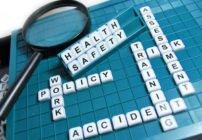Have you ever wondered what happens to your body when you don’t get enough sleep? Here, we find out.
Everyone occasionally has a bad night’s sleep. We can’t always get the recommended seven to nine hours of sleep that we need per night.
But when you chronically sleep-deprived yourself, it can lead to serious health consequences. The body needs sleep to replenish and rejuvenate itself. If it doesn’t get it, then various systems begin to fail and chronic disease has a higher chance of developing.
Sleep duration has been declining since about 1950. Back then, the average person actually got close to nine hours of sleep per night. People didn’t feel the urge to fill every minute of their day with activity. They went to bed early and slept while it was dark.
Then modern technology and working practices came along and things changed. Now we sleep less than ever before, getting as little as 6.5 hours of sleep per night on average.
The consequences of lack of sleep are severe. Here’s how it affects you.
You Have A Weaker Immune System
The immune system requires sleep to function optimally. Without it, it can’t produce all of the infection-fighting substances and cells that it needs to keep you healthy. People who don’t get enough sleep get more colds and flu because they can’t fight bacterial and viral invaders as effectively. This means that they have to take more time off work.
Long-term sleep deprivation also creates more serious conditions in the body. For instance, the immune system can become dysfunctional, increasing the likelihood of diabetes and heart disease developing.
To sleep better at night, try to improve your environment, whether that be trying Blinds By Noon & Shutters too, to playing white noise as you try to drift off to sleep.
Your Respiratory System Begins To Malfunction
Another consequence of sleep deprivation is a dysfunctional respiratory system. If you have chronic lung disease, a lack of sleep can make symptoms worse. Waking up regularly during the night can also increase the risk of infections, such as the common cold and flu.
Your Digestive System Doesn’t Work As Well
Sleep deprivation is a risk factor for becoming overweight or obese. Sleep regulates levels of hunger hormones in your body, ghrelin, and leptin. When you don’t get enough sleep, these go out of whack, causing you to feel hungrier during the daytime and eat more.
That’s why many people trying to lose weight try to get better sleep with earplugs. Resting more helps the body to reset hormone signals, reducing the temptation to snack at night or overeat at evening meals.
Your Cardiovascular System Is At Higher Risk Of Disease
Sleep plays a critical role in keeping your blood vessels and heart healthy. You need adequate sleep to keep blood pressure and inflammation levels in check. If you don’t, then the body can’t carry out necessary healing processes, and tissue becomes increasingly damaged.
Studies show, for instance, that people who don’t get enough sleep are at a higher risk of heart disease at every age. They are also at a much higher risk of experiencing episodes of insomnia and stroke. Therefore, experts recommend shooting for at least 7 hours of sleep per night.
Related Posts
- 4 quick tips for a healthier body
Did you know that the average person only uses 10% of their brain? What a…
- 5 Frugal Ways Towards a Healthier Body
Today, I'm sharing a simple yet powerful post with you, inspired by the Sara Lee®…
- How healthy eating affects your brain and body
What does eating healthy do to your body? Eating healthily can be so important for…


















